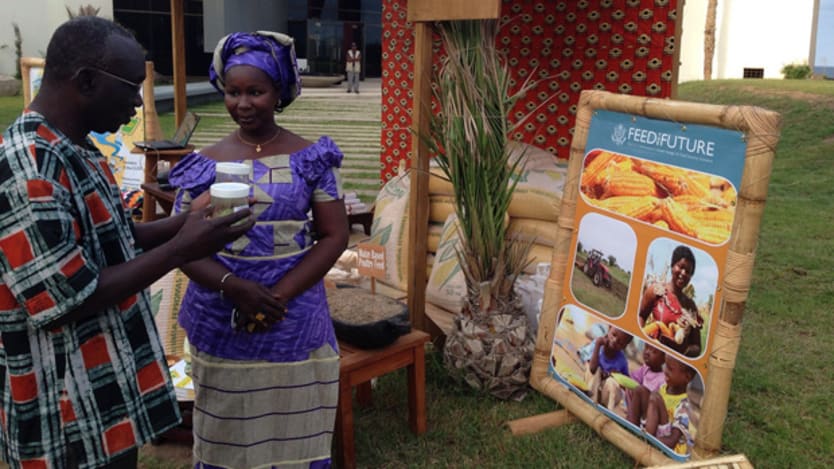
Champions of Feed the Future highlighted the initiative’s successes on Monday at the start of a three-day forum examining the U.S.-led effort to tackle food security, during which participants raised the issue of obtaining continued support in light of a challenging domestic political situation.
Former U.S. Senator Richard Lugar, a Republican from Indiana, said the priority in the United States should be on improving congressional support for Feed the Future and for global food security more broadly.
“The prospects of any unauthorized program become uncertain with a change of administrations,” he said. “More importantly we have seen in recent congressional actions how vulnerable food security can be.”
Lugar was referring to the recent passage of the Coast Guard and Maritime Transportation Act of 2014 by the House of Representatives, which increased the cargo preference. This means the U.S. will now have to send 75 percent — up from 50 percent — of its food aid on U.S.-flagged ships, which would greatly increase costs and result in both slowing and limiting food aid. The former senator called on the Senate to reverse the cargo preference change, both to “preserve the lives at risk and to avoid damage to the United States leadership on food security.”
U.S. Agency for International Development Administrator Rajiv Shah echoed Lugar’s concerns, but also praised the passage of Farm Bill earlier this year that made some changes in the Food for Peace program, including reducing monetized food aid.
Shah used his speech to underscore how Feed the Future has brought better agricultural technologies to more than 4 million hectares of land and reached 12.5 million children under the age of 5 with nutrition programs in 2013. He also discussed several partnerships with universities and the private sector that have leveraged additional investment in knowledge for food security.
“[It is] with this power of public engagement, private investment, policy reforms, support from international experts and scientists that can actually make a dent in ending hunger in our lifetime,” he said.
Shah also mentioned how science and technology can transform the industry and provide solutions to current challenges. To that end, he pointed out that Feed the Future has doubled its investment in research over the past few years and is developing new seeds and new practices to improve yields and livelihoods.
The USAID chief also highlighted a new partnership with Texas A&M University to study eliminating plant rust, a disease that hit Latin America, particularly the coffee crop, quite hard in the past couple years and is threatening the livelihoods of many farmers. The agency estimates that the plant disease has caused more than $1 billion in economic damage in the region.
During the next two days, those working on the initiative will continue to gather and discuss, evaluate and chart the way ahead. Discussions will include topics like how to better promote women in agriculture, improving values chains, expanding research and data, monitoring and evaluation, and climate change.
Read more on U.S. aid reform online, and subscribe to The Development Newswire to receive top international development headlines from the world’s leading donors, news sources and opinion leaders — emailed to you FREE every business day.
See more:
4 years on, Feed the Future at a turning point
Feed the Future: Progress made, challenges ahead
How USAID can engage civil society in Feed the Future








